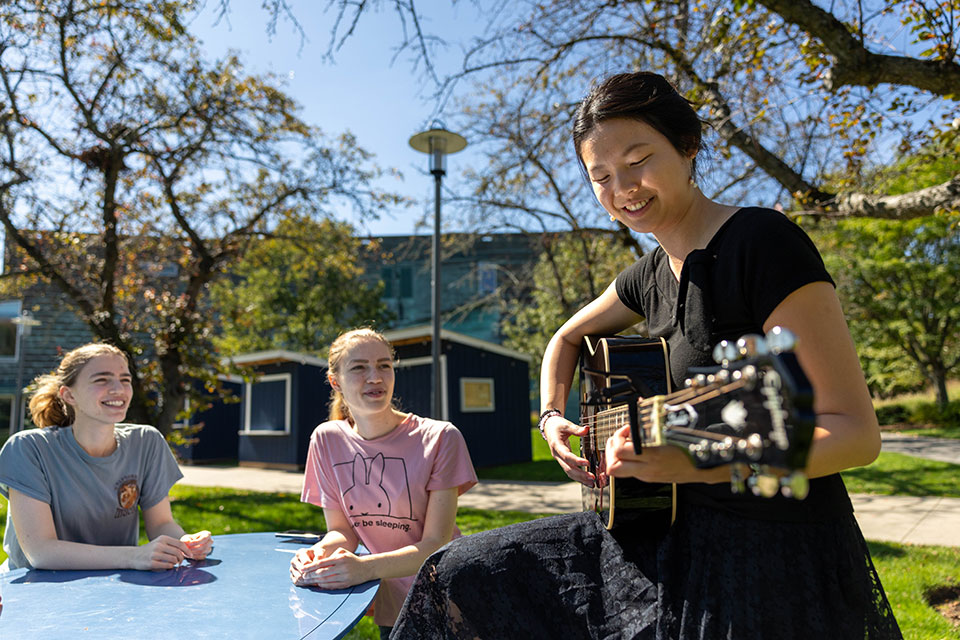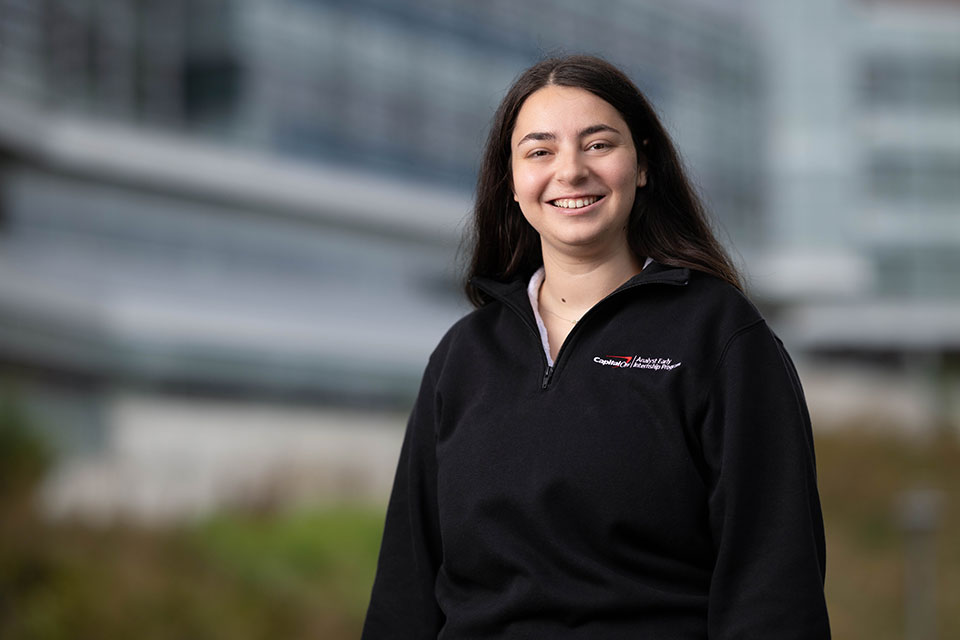On a quest for the electric bug
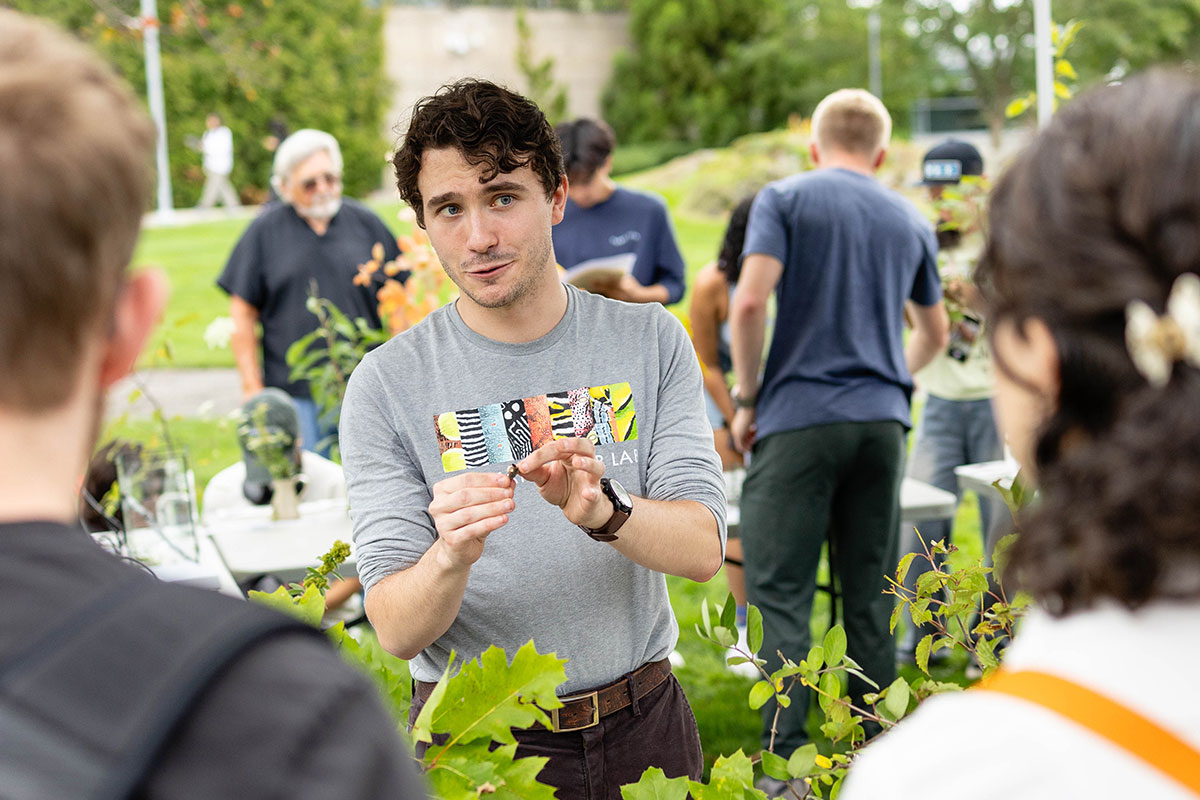
Photo Credit: Gaelen Morse
By Julian Cardillo ’14
September 25, 2025
On a whim, Jack Forrester ’23 ventured out to Deer Island peninsula in Boston Harbor one late July day, hoping that he, at last, might spot the creeping, crawling creation that had eluded him and so many other entomologists over the decades.
It turned out to be Forrester’s lucky day.
He eventually came across a red oak tree covered in empty cocoons he recognized as belonging to the rare bug he sought: Monema flavescens, also known as the Denki mushi, a Japanese slug caterpillar that found its way to New England in the early 1900s aboard cargo ships carrying trees bound for Boston area nurseries.
Forrester, a double major in neuroscience and biology, checked one of the red oak’s dew-covered leaves. When he turned it over, he marveled at his long-awaited find.
He noted its vibrant colors. Denki mushi means electric bug in Japanese, and it is an appropriate name for this shy insect, which was a common invasive species around Boston until it was controlled in the 1930s. The caterpillar’s exterior is mostly bright yellow, with flashes of lightning-blue. Protruding from its yellow and pink exoskeleton are yellow and green silica-tipped venomous spines that look like the spiky feathers on the legendary Pokemon Zapdos.
“It’s really spectacular. When I first heard about this caterpillar, I was just interested in it, but then I kept searching. Searching, and failing to find it,” said Forrester, who is originally from Ipswich, Massachusetts. “It kind of snowballed into an obsession.”
“There was a reported sighting of the Denki mushi in Ipswich, so I thought it was fitting for me to seek it out. I finally found about 13 of them near Boston Harbor after months of looking in different places.”
For Forrester, persistently chasing down rare caterpillars isn’t just a passion project. He is a research coordinator at the Caterpillar Lab, a New Hampshire nonprofit founded in 2015. In his role, he helps advance the lab’s mission to educate and inspire appreciation for local natural history through live educational programs, research and creative projects that foster deeper environmental awareness and care.
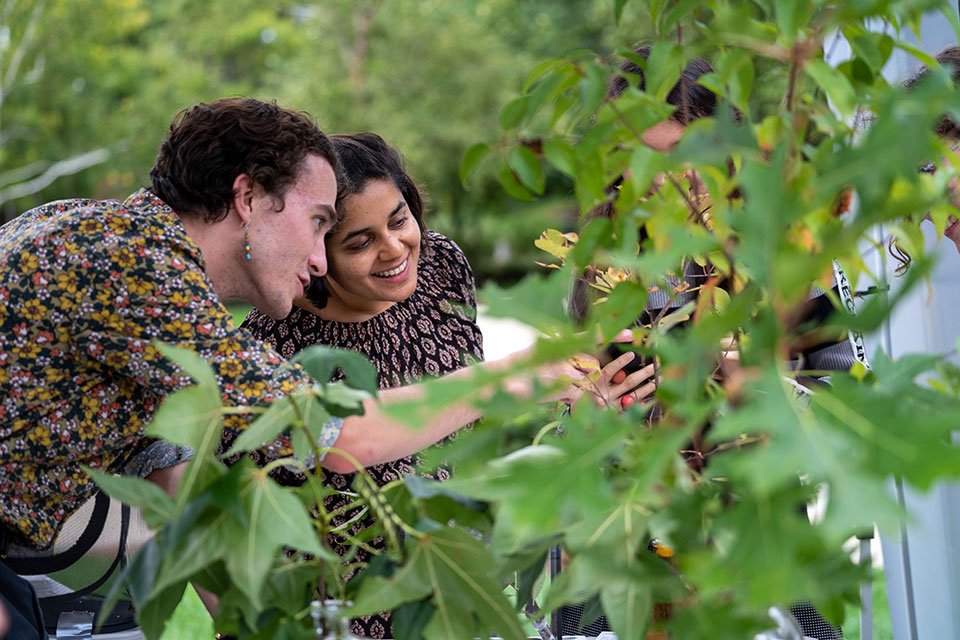
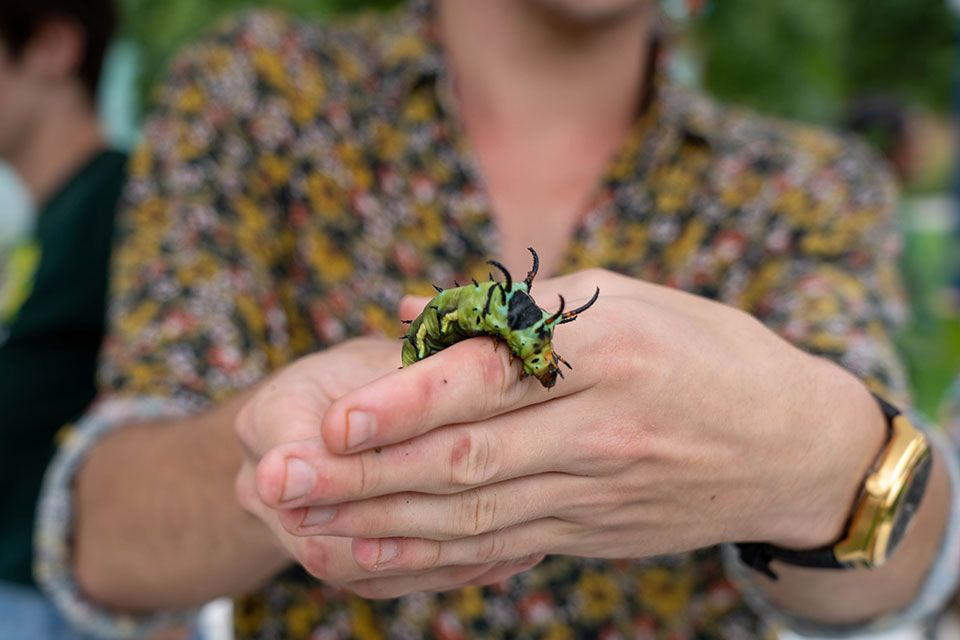
Forrester worked with the Caterpillar Lab while at Brandeis after being encouraged to pursue an internship there by environmental studies professor Colleen Hitchcock. He now works at the lab full-time, planning educational programs for visitors of all ages and helping take care of the facility’s many caterpillar species.
“We store caterpillars indoors as well as outdoors,” Forrester explained. “In the back of the lab we rear caterpillars in large plastic tubs that hold in moisture and keep their host plants fresh, or we raise them outside on trees wrapped in mesh so they can feed naturally without birds or parasitic insects picking them off.
“All of our species go through metamorphosis, which makes the timing tricky for our educational programming — many pupate in late summer, so we refrigerate them to mimic winter and then bring them out in June so they emerge as moths and can start the cycle again.”
As for the 13 Denki mushi caterpillars he took to the lab, Forrester said a portion will be reared so they can become moths, breed and lay eggs, while another batch will be examined by genetics researchers from one of the entomology labs at Harvard. Another project will be a risk assessment of whether or not the Denki mushi could pose a threat as an invasive species.
“If my obsessive searching for the past two years tells us anything, it’s that the Denki mushi is still quite obscure, and does not appear to be making a comeback as a problematic species — so for now, we can simply rejoice in the incredible life history of this secretive caterpillar,” Forrester said.
All of this is quite a leap for Forrester, who came to Brandeis fearful of insects and intending to pursue a career in neuroscience. Taking Hitchcock’s courses changed his perspective. The solitude of the COVID-19 pandemic also opened him up to new hobbies. During quarantine, he got into macro photography, heading into the woods behind the Brandeis campus to snap images of bugs with a DIY flash diffuser he fashioned from a Pringles can.
As his vivid shots of the Denki mushi show, he’s come a long way. He now uses a Sony Alpha 6400 camera with a mirrorless crop frame, and a macrophotography-specific professional diffuser.
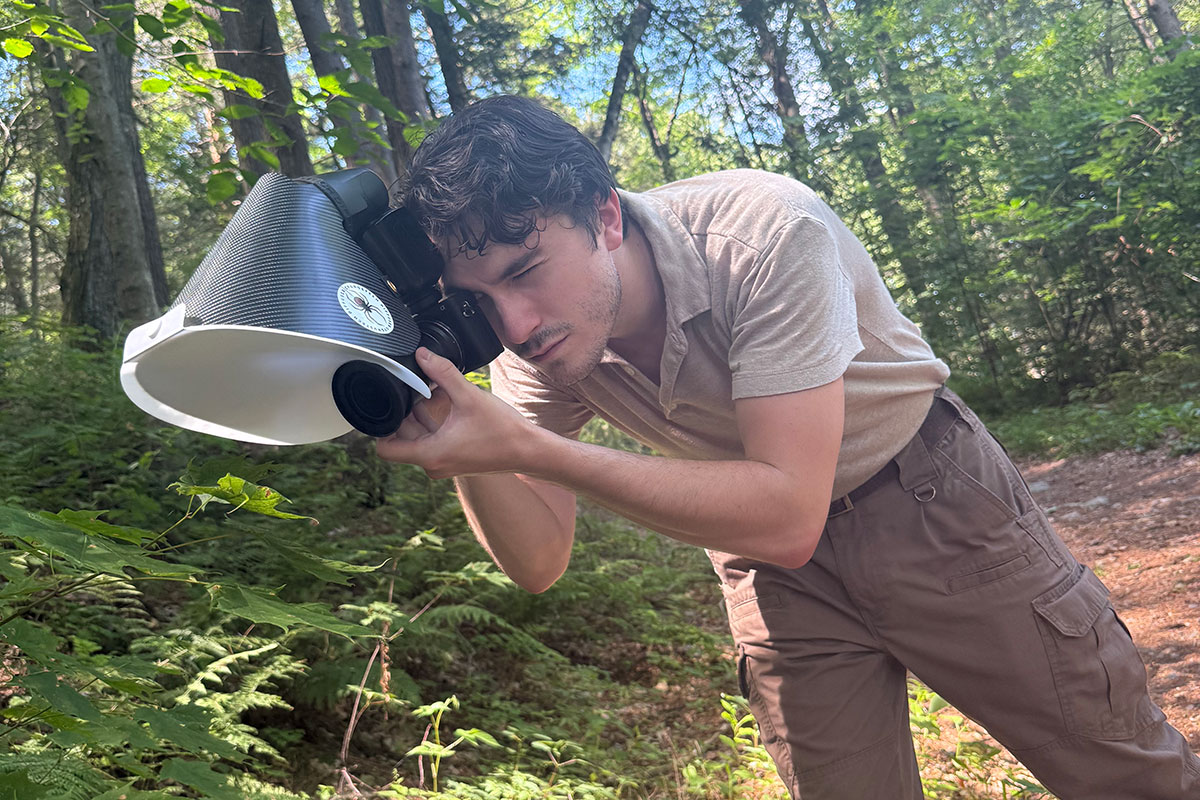
“I’m very much self-taught,” Forrester said. “Over the years I picked up new techniques, mostly from talking to other photographers on Instagram and people giving me tips, like my current boss Sam Jaffe at the Caterpillar Lab.”
Forrester calls his position at the Caterpillar Lab a dream job and isn’t sure where this work will take him next. He knows he wants to travel and could eventually see himself doing more formal entomology research or working in a research lab. When asked how Brandeis prepared him for his working at the Caterpillar Lab — and wherever else his career may take him — Forrester credited Hitchcock again.
“She’s a constant champion for everything I do,” he said. “At Brandeis, it was the greatest experience to be able to hone in on what I really cared about. I was able to take classes in very different fields and areas that fascinate me.”
View Forrester’s photography on Instagram and jackthropod.com.

